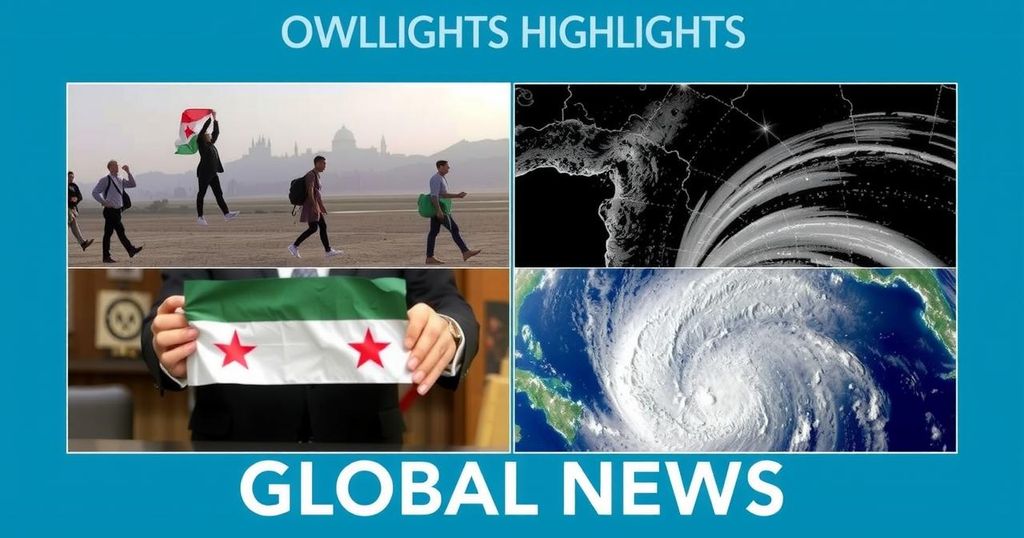Humanitarian Crises Escalate Globally Amid Ongoing Conflicts and Disasters

Humanitarian challenges are escalating globally as the Occupied Palestinian Territory faces blockaded aid and civilian casualties, Syria suffers through harsh winters in displacement camps, Ukraine experiences winter attacks on energy infrastructure, and Mozambique deals with the aftermath of Tropical Cyclone Chido, affecting livelihoods and food security for thousands.
The humanitarian crises across the globe continue to escalate, particularly in regions such as the Occupied Palestinian Territory, Syria, Ukraine, and Mozambique, where recent events have caused devastating consequences for civilians. In Gaza, ongoing hostilities have led to civilian casualties and significant aid blockages, while in Syria, displacement camps are struggling with adverse winter conditions and hazardous remnants of war. In Ukraine, large-scale attacks on energy infrastructure have left numerous citizens without basic services during the winter months. Mozambique has faced severe flooding and displacement due to Tropical Cyclone Chido, affecting thousands. These dire circumstances highlight the urgent need for humanitarian assistance and protection of vulnerable populations in these conflict- and disaster-affected areas.
The current global humanitarian situation presents a complex tapestry of challenges exacerbated by war, natural disasters, and systemic barriers to aid. In Gaza, violent conflicts result in severe humanitarian crises, with significant obstacles hindering aid delivery and exacerbating food insecurity. Similarly, in Syria, prolonged conflict has left millions displaced, facing harsh weather conditions and risks from explosive remnants of war. Ukraine experiences ongoing instability, presenting humanitarian challenges amid winter attacks on infrastructure. Mozambique’s recent cyclonic disaster serves as a reminder of the region’s vulnerability to climate change and violence, further complicating aid efforts and community recovery.
The ongoing humanitarian crises in the Occupied Palestinian Territory, Syria, Ukraine, and Mozambique underscore the urgent need for coordinated international response strategies. Civilians in these regions face dire circumstances that require immediate attention and action. Addressing these crises is crucial for alleviating human suffering and fostering stability in affected areas, as continued conflict and natural disasters persistently threaten livelihoods and basic human rights.
Original Source: www.unocha.org








